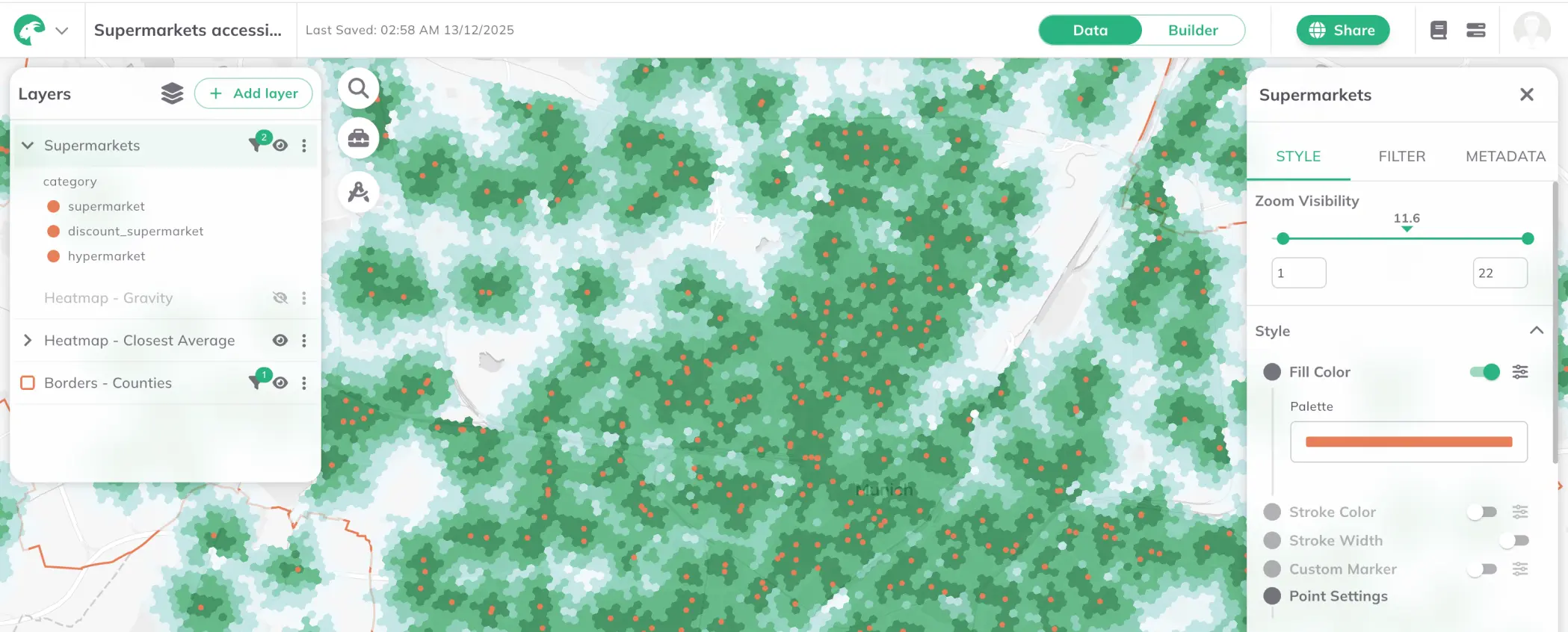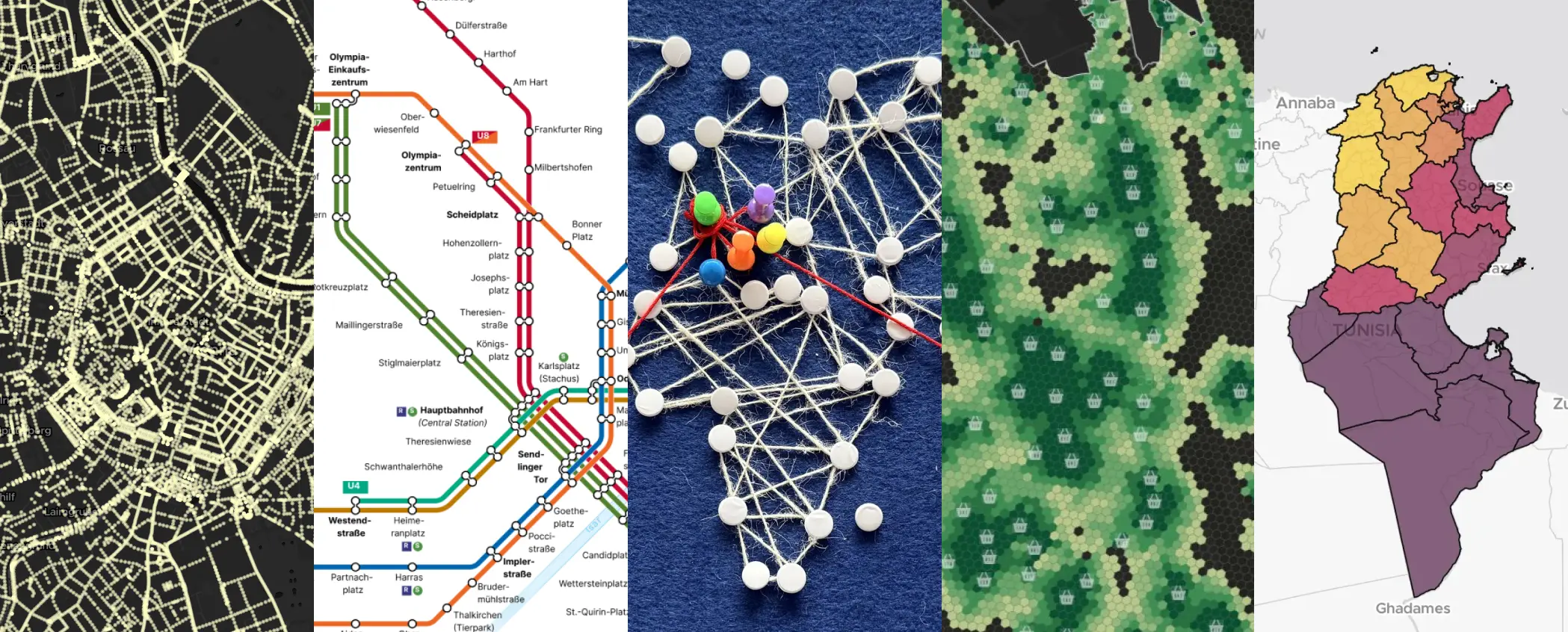GOAT

"Sustainability means: can you continue doing things the way you are doing them today in the long run? If you can't, then it's not sustainable" Anselm Görres, Forum Ökologisch-Soziale Marktwirtschaft (17 Goals).
The term sustainability goes back to the 1987 "Brundtland Report" of the United Nations World Commission on Environment and Development. Here it is defined: Sustainable development means satisfying present needs without limiting the attainment of those needs in the future. Sustainability is divided into the three dimensions economy, ecology, and economy (WCED 1987).
Summarizing, this means that sustainability concerns us all.
Since the publication of the Brundtland Report, attention to sustainable development has been increasing. With the 2030 Agenda, 17 goals were set by the United Nations to achieve sustainable development worldwide. These goals are called the 17 Sustainable Development Goals (SDG) (BMZ 2021).
Sustainability in this sense stands for the expansion of peace, prosperity and climate protection and thus includes social, ecological and economic sustainability. The focus is on human dignity, protection of the planet, prosperity for all, peace and the development of global partnerships (BMZ 2021).
Sustainable development can thus only work if we consider the dimensions as an interplay of many individual components - that is why we have developed GOAT, a software that acts directly on five development goals:

More information about the SDG: https://www.un.org/sustainabledevelopment/
With GOAT, we encourage planning decisions that support active mobility, i.e., walking and cycling. This enables better access to active forms of physical activity for people, both urban and rural.
Walking and cycling promote physical and mental health and contribute to a positive state of mind. It can also reduce risks of preventable diseases, such as obesity and heart problems. For example, did you know that life expectancy increases by 0.7 years when we exercise daily (Oberhofer 2015)?

Accessibility analyses can be used to map areas with limited access to educational facilities, such as kindergartens and elementary schools.
Heatmaps in GOAT show how a neighborhood can be improved in terms of its accessibility to educational facilities, depending on population density, connectivity, and walking distance.
As a mobility startup, we promote the planning of sustainable infrastructure with innovative products.
Our planning software GOAT makes it possible to locate significant infrastructure, such as roads, bridges, buildings, and public facilities, so that they can be used by as many pedestrians and cyclists as possible. GOAT is based on the concept of the 15-minute city.
The core of GOAT is the planning of sustainable cities and communities. By providing an easy-to-use planning tool, we help planners evaluate measures to promote active mobility concepts, design vital spaces, create connected communities, and ensure easy access to daily needs and green spaces.
With this in mind, we have already conducted several pilot projects in cities such as Munich, Istanbul and Freiburg. You can find more information here.

As part of the target for climate protection measures, we are promoting low-emission forms of mobility to create more sustainable urban and rural areas.
Expanding and improving pedestrian and bicycle paths, as well as providing key infrastructure, can reduce CO₂ emissions and contribute to a cleaner environment for the population. Active mobility is therefore not only good for the body and mind, but also helps the climate.
Another environmentally friendly form of mobility is public transport. Here, GOAT can be used to improve accessibility to public transport stops or to bike sharing stations. For example, it can be analyzed where a bus stop is still missing so that more people use the bus.
As a company, we have made a conscious decision to support sustainable development and make our contribution. We are pleased to contribute to 5 of the development goals with GOAT.
In this context, the SDGs serve as important guidelines to question our actions in terms of sustainability and to inspire us further for the future. Our goal is to encourage as many cities and regions as possible in sustainable development.
You want to learn more about GOAT? Contact us.
17 Ziele. Ziel 11: Nachhaltige Städte und Gemeinden. Available online at https://17ziele.de/ziele/11.html, checked on 1/28/2022.
Bundesministerium für Wirtschaftliche Zusammenarbeit und Entwicklung (BMZ) (2021). Agenda 2030 – Die globalen Ziel für nachhaltige Entwicklung. Available online at https://www.bmz.de/de/agenda-2030, checked on 1/28/2022.
Oberhofer, Elke (2015). 20 Minuten pro Tag: Spazierengehen verlängert das Leben. Springer Medizin Verlag, Ärzte Zeitung. Available online at https://www.aerztezeitung.de/Medizin/Spazierengehen-verlaengert-das-Leben-250822.html, checked on 01/28/2022.
World Commission on Environment and Development (WCED) (1987). Our Common Future. Oxford University Press. Available online at https://sustainabledevelopment.un.org/content/documents/5987our-common-future.pdf, checked on 04/22/2022.

GOAT
.webp)
Insights

.png)
.jpg)
.jpg)
.jpg)
.jpg)




Whether you need state-of-the-art GIS technology, extensive datasets or expert advice – we are ready to help you shape a sustainable and liveable future for our community.